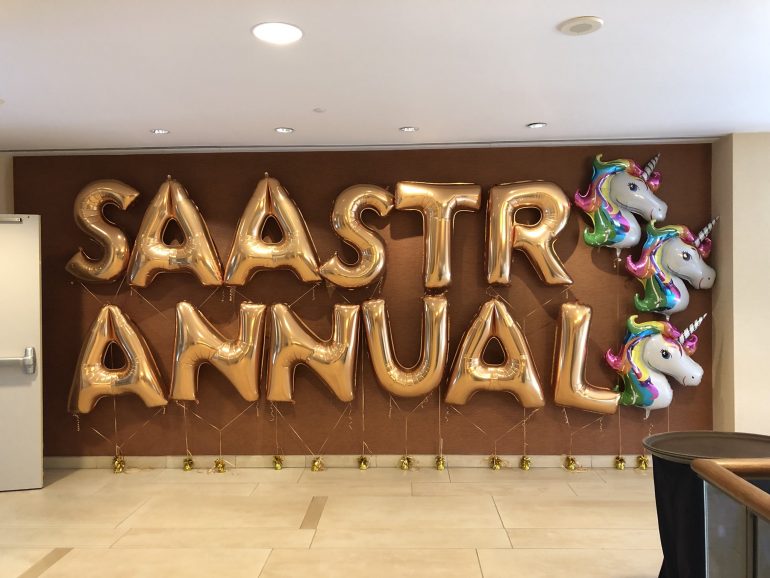The SaaS industry is bigger than ever, and nowhere is that more clear than at SaaStr.
The annual SaaS conference hosts a global gathering of tech founders, execs, and investors who come together to share the insights, best practices, and bruises earned while running and scaling successful SaaS businesses.
Our team at Espresso Capital was among the 10,000 attendees who flew into San Francisco last week to listen to and learn from 250 different speakers and 40 hours of compelling content.
By far the most exciting part of this year’s show was the notable presence of strong Canadian talent, and we had the chance to catch up with a few successful Canadian entrepreneurs to get their take on the event’s major themes.
Diversity is changing the landscape — for the better
Joseph Fung of Kiite.ai, a smart AI coach that can enable sales teams automatically, highlighted diversity in hiring as an increasingly-powerful differentiator for smart SaaS business.
“Diversity-first is not only an ethical imperative, but a great strategy,” said Fung. “It’s also increasingly attainable. SaaStr did a great job at facilitating the attendance of under-represented groups. We had wonderful moments like this.”
Zak Hemraj, CEO of smart RFP response platform Loopio, shared a similar sentiment. “Diversity in tech is vital for success, and you have no excuse to not participate in moving the needle forward.”
The next wave of real “next-gen” disruption looms
Diversity wasn’t the only differentiator raised in the talks. The smart use of next generation technologies was also pinpointed as a critical component of success.
“I think the era of SaaS being new and different is over,” said Paul Teshima, CEO of sales relationship management platform Nudge.ai. “It’s now all about how you use next generation technologies to get a competitive advantage for the future. AI is one of them.”
My notes from @stewart and @alexrkonrad at #SaaStrAnnual2018. Enjoy! pic.twitter.com/XtbgsJpE5O
— John Gleeson (@JohnGleeson10) February 6, 2018
Account HQ CEO Chris Hamoen was likewise bullish on the disruptive power of next-gen tech. He and his team are tackling the SalesForce-dominated CRM space with the help of artificial intelligence.
“I think there is going to be a reset back to new companies recognizing there is a real opportunity to become not just a feature of existing tools, but to replace the tool and become not only a system of record, but a system of intelligence,” said Hamoen.
The only way to get big is to solve big problems (carefully)
At the heart of discussions around new tech was perhaps the biggest theme of the event: the need to solve big problems. In today’s market, the spoils are going to the victors tackling the biggest problems.
“SaaS appears to be going highly vertical to the point where I wonder if the various startups really have a big enough total addressable market,” said Hamoen.
Catherine Dahl, founder of accounts payable automation platform Beanworks, was equally skeptical of companies trying to tackle small problems. She sees the shift from “death by 1,000 SaaS systems” towards “suites of ‘functional platforms’, like Zenefits.”
Marketing and sales are really very different says @philf1217 – They need separate leadership. This is in direct contrast to the CRO trend. What do you think? #SaaStrAnnual2018
— Jamie Kirmess (@JamieKirmess) February 6, 2018
Teshima summed up the thoughts of his peers succinctly: “You are only as good as the problem you can solve, so solve a big problem.”
Of course, bold solutions to big problems aren’t enough, and amidst the increasing skepticism of Big Tech’s trustworthiness, many at the event also spoke of a looming crackdown on tech from governments, investors, and customers alike.
“There is still a surprising lack of attention on the governance of SaaS companies,” Fung warned. “This will change in 2018. We’re going to see it as a wakeup year.”
CE-O Canada
With our increasing reputation as a global leader in spaces like artificial intelligence and FinTech, and the international visibility of Salesforce’s $2 billion investment and our Amazon HQ2 bid, Canada and its SaaS companies featured heavily in many discussions at the event.
Indeed, if this year’s SaaStr made any one theme clear, it was the increasing interest and confidence in the Canadian CEOs and companies who are shaping not just the year ahead but the future beyond.
Feature photo via Twitter

